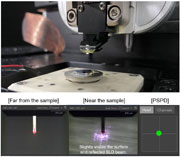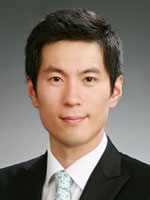Tuesday, 22 September, 2020
- 13:30 pm
(SGT)
Singapore - 10:30 am
(PKT)
Islamabad, Pakistan - 11:00 am
(IST)
Bangalore, India - 16:30 pm
(AEDT)
Sydney, Australia

AFM Live demo
How to operate AFM
Since atomic force microscopy (AFM) has been developed, it becomes novel technique for surface investigation including topography and other material properties measurement. AFM shows high utilization in
the research field due to complementary relationships with optical microscopy, electron microscopy and other measuring equipment.
In this session, the basic principles and the application of AFM which can be used in scientific and industrial fields are examined.
In particular, we share the images measured by the actual atomic force microscope with specific examples of various applications and look at their meaning. In addition, we present how to operate AFM including cantilever
selection, sample preparation, description of imaging parameters and operation in order to obtain better understanding for AFM. As the first session, AFM cantilever selection depends on sample type is one of the most
important processes for the proper result. We review several representative AFM cantilevers and provide tips for how to choose AFM cantilever. Also, how to prepare your sample for AFM imaging, specific meaning of AFM
parameters and their outputs are discussed using actual examples and pictures.
After oral session, AFM live demo using standard sample is prepared by Park Systems skillful engineer. During the AFM live demo session, hardware and software setup with Auto and Manual mode are presented for
understanding of actual AFM measurement.

Presented By :
Jake Kim, Application Technology Center Manager, Park Systems
Dr. Kim received Ph.D. degree in Materials Science and Engineering from Nanyang Technological University, Singapore. He joined Tokyo Institute of Technology International Research Opportunities Program (TiROP) in 2014 and was engaged in nano-scale chemical composition analysis using scanning probe microscopy (SPM). From December 2017, he started to work in Park Systems as the manager of application technology center. He is specialized in the enhancement of nano-machanical measurement performance for Atomic Force Microscopy (AFM), building up a accurate and reliable environment for electrochemical measurement using Scanning Probe Microscopy (SPM; SECM,SECCM) and Scanning Ion Conductance Microscopy (SICM) applications development for biology.






